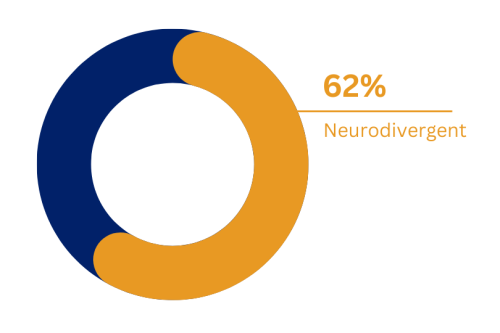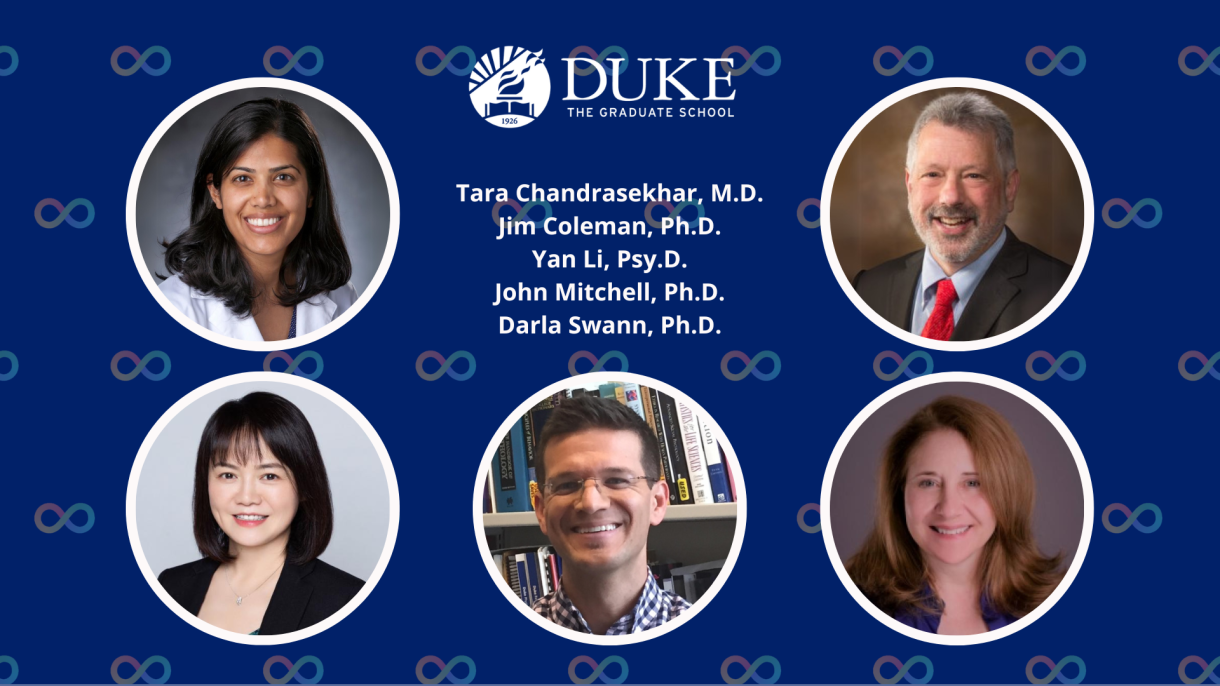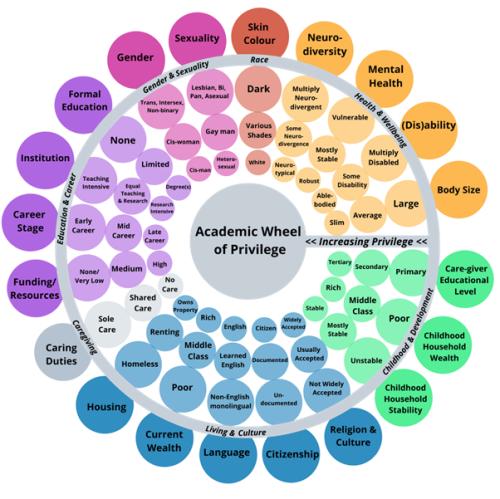
Championing Neurodiversity: Key Takeaways from Recent Development Session
On January 24, 2025, The Graduate School held a session titled “Supporting Neurodivergent Graduate Students” as part of the DGS / DGSA Professional Development Series. The panel was offered to all TGS staff and faculty, including Directors of Graduate Studies (DGS’s) and their assistants (DGSA’s).
During the session, panelists presented on topics including the basics of the neurodiversity paradigm, traits of Autism Spectrum Disorder (ASD), Attention-Deficit/Hyperactivity Disorder (ADHD), and other neurodivergent conditions, as well as accommodations and resources available for neurodivergent graduate and professional students at Duke.
Neurodiversity Within TGS
Graduate students connected with the Student Disability Access Office (SDAO) have the opportunity to self-report their neurotype as well as what condition(s) they experience. As of fall 2024, of the 750 graduate students connected with SDAO, 62 percent identified as neurodivergent. However, underdiagnosis and the probability that not all neurodivergent students are utilizing services at SDAO suggest the actual number is likely much higher.

“This number highlights the diverse need within the neurodiverse population and the importance of providing tailored support,” said Yan Li, Psy.D., Associate Dean of Graduate Student Affairs. “Studies have shown that neurodivergent individuals are significantly more likely to experience mental health disorders and other challenges...understanding this complexity is critical to providing effective support.”
What is Neurodiversity?
“Neurodiversity” is a term coined in 1998 often attributed to autistic Australian psychologist Judy Singer. It describes the idea that variations in human cognition are natural differences rather than deficits.
“Although neurodiversity is usually used to describe neurodivergent individuals, it refers to all of mankind, because everyone has a unique way of processing information,” said Suzanne Barbour, Ph.D., Dean of The Graduate School.
“Neurodivergent,” a term coined by Kassiane Asasumasu, refers to those “whose neurocognitive functioning diverges from dominant societal norms.” The term is intended to be inclusive of those with neurodevelopmental disabilities such as autism, ADHD, and dyslexia, as well as those whose cognitive functioning is impacted by another experience such as a mood disorder.

Challenges for Students, Strategies for Faculty and Staff
Graduate school presents unique challenges for neurodivergent students, such as difficulties with new situations and unexpected changes.
“Our students do better when they know what’s expected and when there is relative stability in their routine,” Li said. Sensory overload can contribute to exhaustion as well. “This can certainly show up on campus when there are very loud events at the beginning or end of the year or in large group settings,” she said.
Executive functioning differences are at the root of many of these struggles.

Faculty and staff were trained in strategies to support neurodivergent students, such as setting clear expectations, providing instructions via multiple mediums, making materials available in advance where possible, and providing different options to showcase skills.
“Try to make the invisible visible and improve the way that we communicate so that things are as clear as they possibly can be,” said Tara Chandrasekhar, M.D., a psychiatrist at the Duke Center for Autism and Brain Development.
Audience members shared their own strategies, such as meeting with students one-on-one on a scheduled basis and providing checkpoints for long-term projects.
Lived Experience
Jim Coleman, Ph.D., a professor and Graduate Program Director at UNC-Greensboro, shared his experience as a someone not diagnosed with autism until his 60s.
It was freeing to find out I was a zebra, not a messed-up horse." -Jim Coleman, Ph.D.
Coleman presented on some of the ways that his autism presents and how having autism has influenced his career in higher education. Throughout his career, the environment contributed to sensory overload: loud, bright, and crowded. His behavior and speech could be misinterpreted, and he was frequently running late.
“It was hard, and most of my life felt like I was paddling upstream without a paddle,” Coleman said. Still, Coleman does not perceive himself as having a disability. "It is my greatest superpower and it's my kryptonite," he said.
Coleman’s advice on supporting neurodivergent graduate students consisted of curating lower-pressure social spaces, adjusting lighting and sound level to be less overstimulating, and more generally, being less judgmental and not making assumptions about people.
Strengths of Neurodivergent Students
While neurodivergent students may struggle with aspects of graduate school, they also possess strengths beneficial in pursuing their graduate degree. Darla Swann, Ph.D., a learning consultant and neurodiversity specialist at the Duke Academic Resource Center (ARC), presented in part of some of the strengths she frequently sees in neurodivergent students, including advanced cognitive abilities, creativity and imagination, innovation, and an entrepreneurial spirit.
“They add a lot of assets to our community. They’re very bright, out-of-the-box thinkers with a lot of really good imaginative creative abilities,” Swann said.
Audience members contributed strengths they have seen in their neurodivergent students, such as the ability to hyper-focus on their passions, intense interests, attention to detail, high levels of empathy, and unambiguous communication.
Resources
Duke has a number of resources available to neurodivergent students. Among these are:
-
Academic Resource Center (ARC): meant for undergraduate students; however, graduate students may come in for one session to identify needs and be referred to relevant resources
-
Student Disability Access Office (SDAO): provides accommodations for eligible students to ensure equitable access to succeeding in courses. Available accommodations include, but are not limited to:
-
Instructional/Classroom: permission to record lectures, assistance with note-taking, preferential seating, assistive technology
-
Test-Taking: extended time, minimally distracting test environment, breaks without penalty, use of a computer
-
Personal: dining and/or housing accommodations, underloading, extra semesters
-
-
Neurodiversity Connections (NDC): a working group composed of students, staff, faculty, and administrators with a goal to increase awareness and promote inclusion of neurodiversity
-
The Clubhouse: An NDC-sponsored, low-pressure working space. Also hosts monthly events in a sensory-friendly environment.
-
-
Duke Disability Alliance: a student organization aiming to make Duke more inclusive and accessible by fostering conversations about disability issues, expanding accessibility on campus and in the community, encouraging positive perceptions and full appreciations of people with disabilities, and promoting their legal rights.